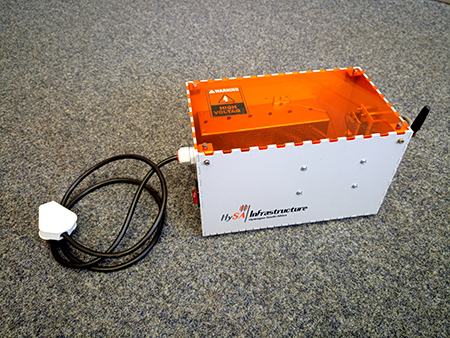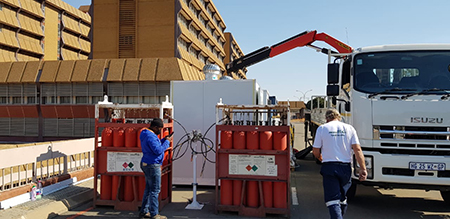During the presentation of the budget vote of the Department of Science and Innovation (DSI) in the National Assembly on 24 July 2020, the Minister of Higher Education, Science and Innovation, Dr Blade Nzimande, highlighted a number of flagship projects, also those dealing with Covid-19 challenges, including projects in which Hydrogen South Africa (HySA) has been involved.
The Department of Science and Technology of South Africa developed the National Hydrogen and Fuel Cell Technologies (HFCT) Research, Development and Innovation (RDI) Strategy. The national strategy was branded Hydrogen South Africa (HySA).
The overall goal of HySA is to develop and guide innovation along the value chain of hydrogen and fuel-cell technologies in South Africa. The overall vision of the HFCT RDI strategy is to bring about wealth, jobs and intellectual property rights creation through the initiation of new high-technology industries based on minerals found on South African soil, especially platinum-group metals (PGMs).
Allied to this is the goal of developing a cost-competitive solution for generating hydrogen locally, focusing on using renewable energy. The supporting enabling goal of developing a range of high-level skills, generally in accordance with the required human capital development strategy, is also included.
HySA consists of three centres of competence – HySA Infrastructure, HySA Catalyst and HySA Systems. The HySA Infrastructure (hydrogen production, storage and delivery) Centre of Competence, HySA Infrastructure for short, is co-hosted by the North-West University (NWU) and the Council for Scientific and Industrial Research (CSIR), with Prof Dmitri Bessarabov as its director.
HySA at the NWU has been operating in the research spaces associated specifically with hydrogen production and storage, and is engaged in research ranging from fundamental research to specific demonstration projects. One of the successful projects, carried out in collaboration with other HySA hubs, was the “Poelano High School Hydrogen and Fuel Cell Rural School Demonstration Project”.
“The most recent project that was mentioned by the minister in which HySA at the NWU has been involved was the development of a remote pressure monitor (RPM) system for a hydrogen fuel-cell system installed at 1 Military Hospital in Pretoria, and the supplying of “green” hydrogen for fuel-cell testing under the contract with the DSI and the Bambili Group,” says Prof Bessarabov.

RPM (remote pressure monitor) developed by the HySA Centre of Competence at the NWU.

Hydrogen fuel-cell system being installed at 1 Military Hospital in Pretoria by the Bambili Group.
